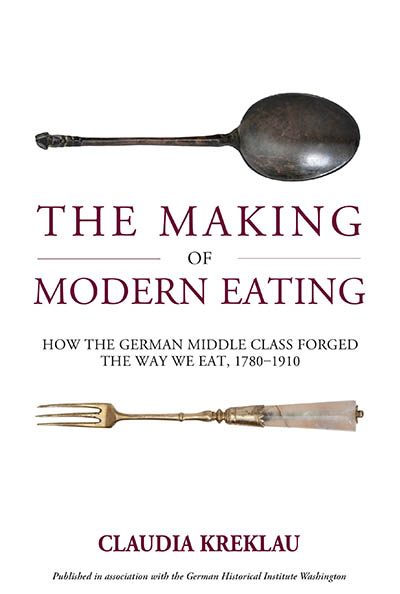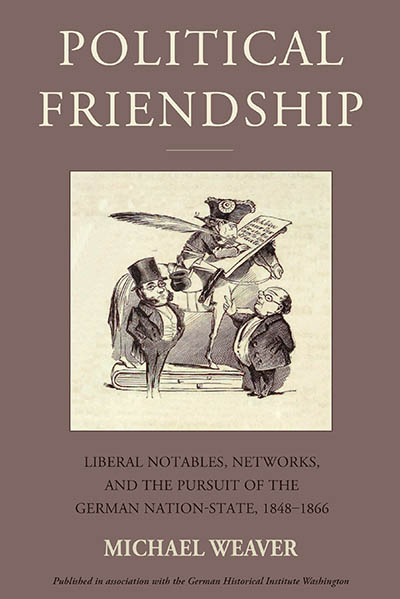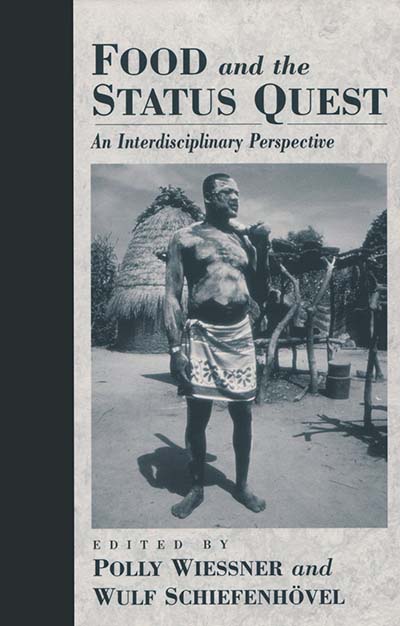
Series
Volume 32
Studies in German History
See Related
History JournalsEmail Newsletters
Sign up for our email newsletters to get customized updates on new Berghahn publications.
The Making of Modern Eating
How the German Middle Class Forged the Way We Eat, 1780-1910
Claudia Kreklau
Made available under a CC BY-NC-ND 4.0 license with support from German Historical Institute, Washington D.C.
368 pages, 17 illus., bibliog., index
ISBN 978-1-83695-358-6 $150.00/£115.00 / Hb / Not Yet Published (February 2026)
Reviews
“Claudia Kreklau’s excellent book throws light on every important aspect of nineteenth-century German society from the engaging standpoint of the history of food. Readers will be fascinated by her innovative discussions of food adulteration, the rise of restaurants, the wonders of meat extracts, the dangers of being a female cook—and so much more.” • Suzanne Marchand, author of Porcelain and President-Elect of the American Historical Association
“Making Modern Eating widens our conceptual parameters of modern German and European history, showing how Germany’s nineteenth-century foodways set trends and shaped characteristics of the modern industrial world…a tour de force that promises to be a field-defining work. [Kreklau is] a historian with a capacious and bold historical imagination… a rising star in our field.” • Jim Brophy, Francis H. Squire Professor of History
“What do people eat? How, by whom, and in what places is food prepared and served? What is believed about food constituents and their powers? All these things were radically transformed during the course of the 19th century, and, in these respects and others, the German-speaking lands were at the leading edge of culinary change. Claudia Kreklau has produced a richly detailed argument for the significance of Germany in making modern eating practices and about changing foodways in making modern German society.” • Steven Shapin, author of Eating and Being: A History of Ideas about Our Food and Ourselves
Description
Nineteenth-century Germany invented the way we eat. Women experimenting in households, French chefs fleeing guillotines, and one of the most rapidly evolving food industries in the world forged recognizably modern eating practices between 1780 and 1910. While central Europeans merely aimed to survive long winters, experiment with translated recipes and curious ingredients from abroad, and embrace the conveniences of industrial life, their consumption habits and cooking practices created a new product landscape. Throughout this transitional era of history, individuals visibly communicated their self-understandings through food. This study of central European food modernity and middle-class identity aims to provide fresh footing for discussions in our own changing global era.
Claudia Kreklau is Historian of Modern Europe at the University of St Andrews. She is the three-time prize-winning author of seven academic articles published among others with German History (Oxford University Press), the German Studies Review (Johns Hopkins University Press) and Gastronomica (California University Press). Her work has been supported by the Carnegie Trust, the Wellcome Trust, the Thyssen Foundation, the Royal Historical Society, and the Central European History Society. She is currently writing a History of the German Empire for Bloomsbury Academic’s German History in Focus series.
Subject: History: 18th/19th CenturyFood & Nutrition
Area: Germany
The Making of Modern Eating by Claudia Kreklau is available open access under a Creative Commons Attribution-NonCommercial-NoDerivatives 4.0 International License (CC BY-NC-ND 4.0) with support from German Historical Institute, Washington D.C.
OA ISBN: 978-1-83695-360-9




